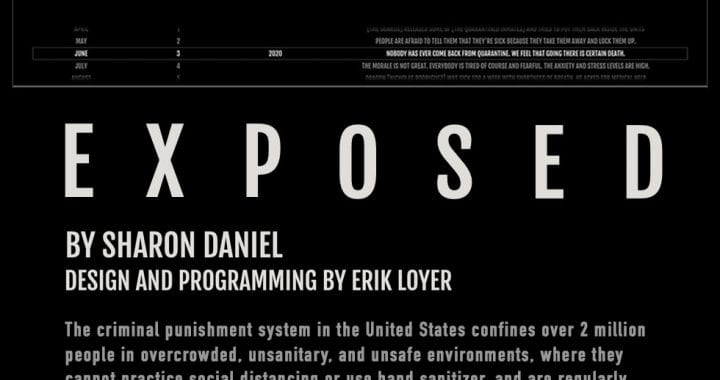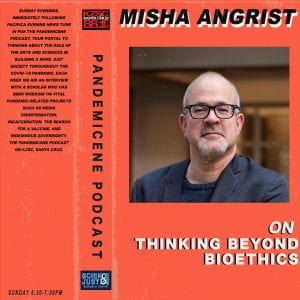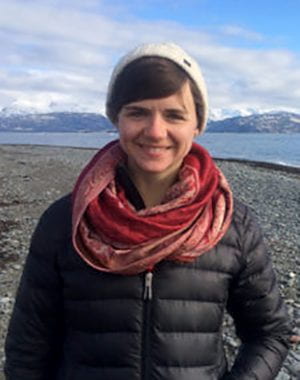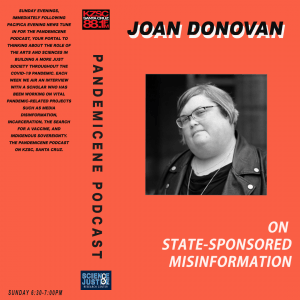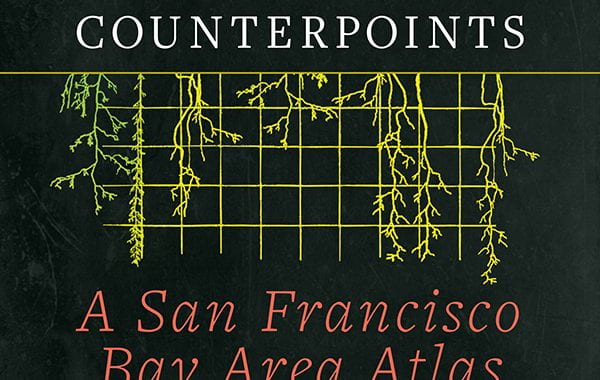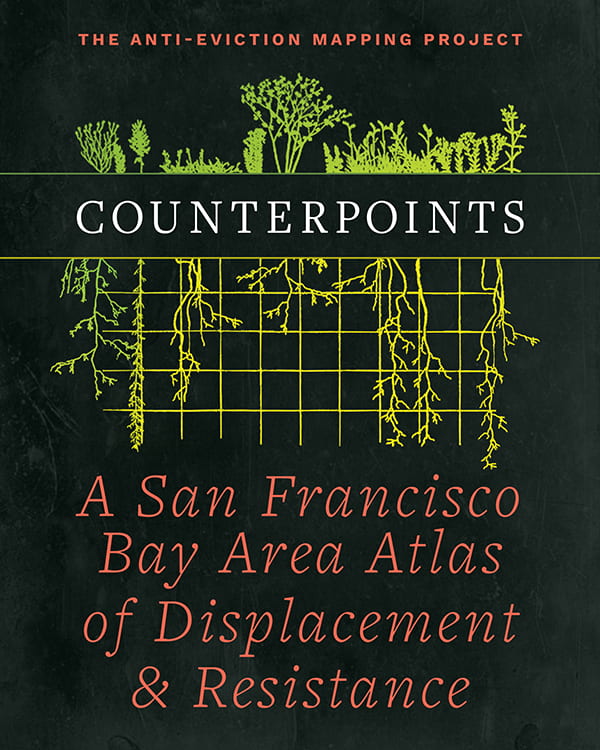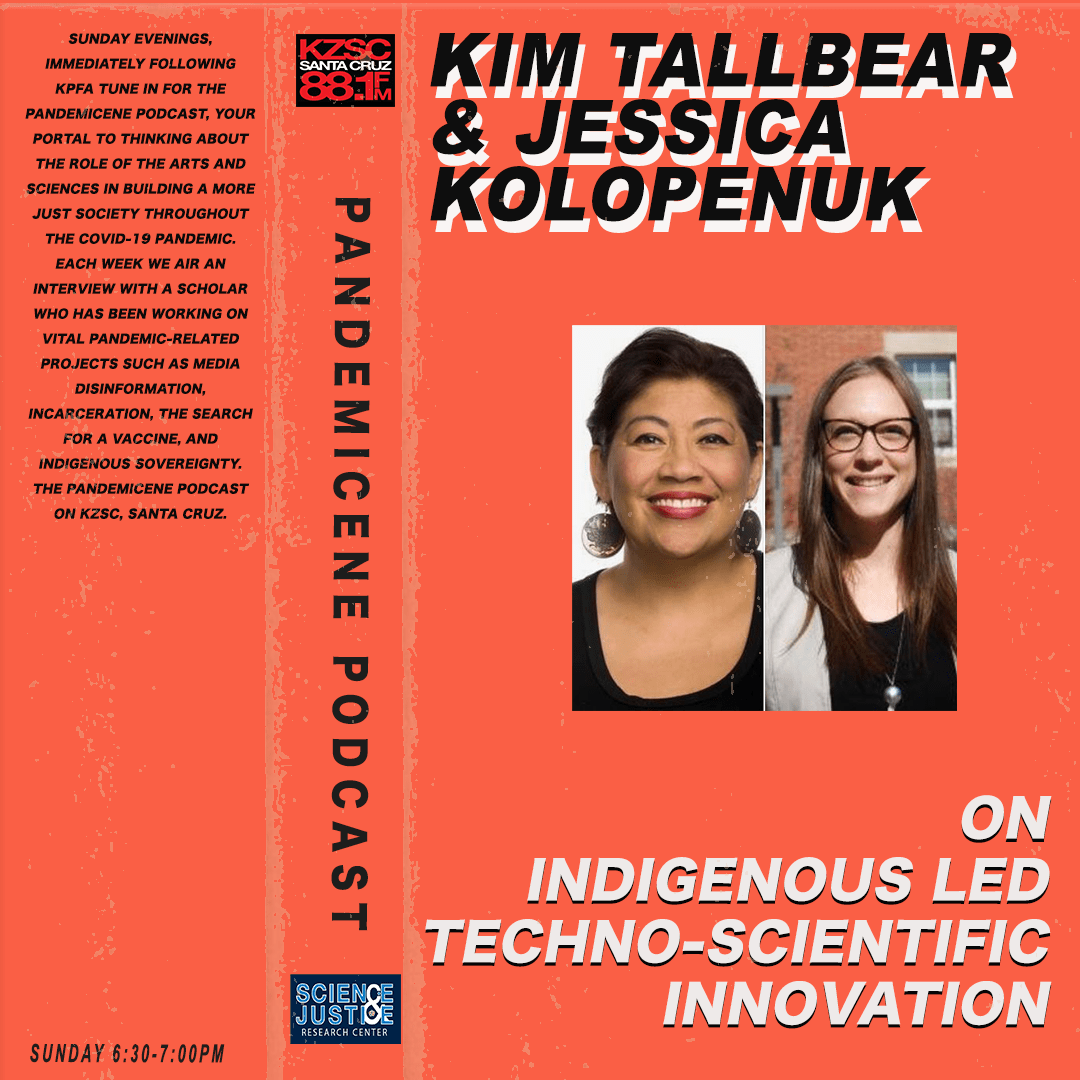UCSC Film and Digital Media Professor and Science & Justice Affiliate Sharon Daniel launches Unjustly Exposed (https://www.unjustlyexposed.com/), an interactive documentary on COVID in prisons and jails.
About Exposed
The criminal punishment system in the United States confines over 2 million people, in overcrowded, unsanitary, and unsafe environments where they cannot practice social distancing or use hand sanitizer and are regularly subjected to medical malpractice and neglect. EXPOSED documents the spread of COVID-19, over time, inside these prisons, jails, and detention centers, from the perspective of prisoners, detainees, their families, and staff.
EXPOSED is comprised of quotes, audio clips, and statistics from online publications and broadcasts that are assembled to create a cumulative public record and evolving social history of the coronavirus pandemic’s impact on incarcerated people. Each quote is linked to its original source.
EXPOSED reveals the overwhelming scope and scale of suffering inside carceral spaces across the US as the virus continues to spread. The content is organized chronologically, along an interactive timeline, that on each day, provides abundant testimony to the trauma and precarity that prisoners experience under coronavirus quarantine. For example, on July 8th alone, there are over 100 statements included in the interface — statements made primarily by prisoners afflicted with the virus or enduring anxiety, distress, and severe hardships. Unfortunately, their words are all we have access to. Since the first reported coronavirus infection in the US, incarcerated people have been subjected to extreme forms of isolation — visits have been suspended, phone privileges restricted and the use of solitary confinement has expanded by orders of magnitude. The design of the interface, a monochrome image-less screen space that allows viewers to step through or select from thousands of ‘headline-style’ text sequences and audio clips, reflects the sense of confinement — the fragmentary and ephemeral forms of contact prisoners have with the outside — and signals that the injustice they collectively endure is structural.
Exposed Credits
By: Sharon Daniel
Design and Programming by: Erik Loyer
Research Assistant: Brian Myers
Research Interns: Alyssa Brouwer, Nailea Castillo, Brandon Castro, Anysia Deak, Srijeeta Islam, Jacinto Salz, Charlotte Schultz
The quotes, audio clips and statistics included in EXPOSED are excerpts from a wide array of online publications and broadcasts. All excerpts are linked in the interface to the original source.
Special thanks to Timothy James Young, Wayne La Mar Palmer and Ty Zimmerschied for their contributions.
Data Sources
UCLA Law COVID-19 Behind Bars Data Project
The COVID Prison Project
The Marshall Project State-by-State Look at Coronavirus in Prisons
Vera Institute of Justice
Developed with Stepworks
This project has been supported in part by the Arts Research Institute at the University of California, Santa Cruz

